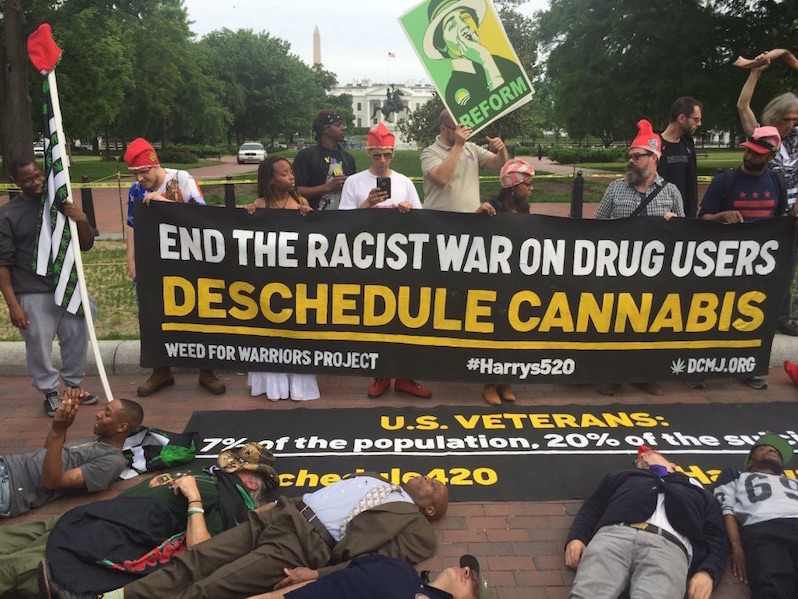President Obama Must Act on Marijuana Reform
Expanding legal access to cannabis would help veterans with PTSD and many other vulnerable populations. Because the next president may not do it, it’s a change that should be made now. Protesters supporting veterans held a die-in ceremony in front of the White House on May 20. (Weed for Warriors/DCMJ)
1
2
Protesters supporting veterans held a die-in ceremony in front of the White House on May 20. (Weed for Warriors/DCMJ)
1
2

Protesters supporting veterans held a die-in ceremony in front of the White House on May 20. (Weed for Warriors/DCMJ)
Independent journalism is under threat and overshadowed by heavily funded mainstream media.
You can help level the playing field. Become a member.
Your tax-deductible contribution keeps us digging beneath the headlines to give you thought-provoking, investigative reporting and analysis that unearths what's really happening- without compromise.
Give today to support our courageous, independent journalists.






You need to be a supporter to comment.
There are currently no responses to this article.
Be the first to respond.